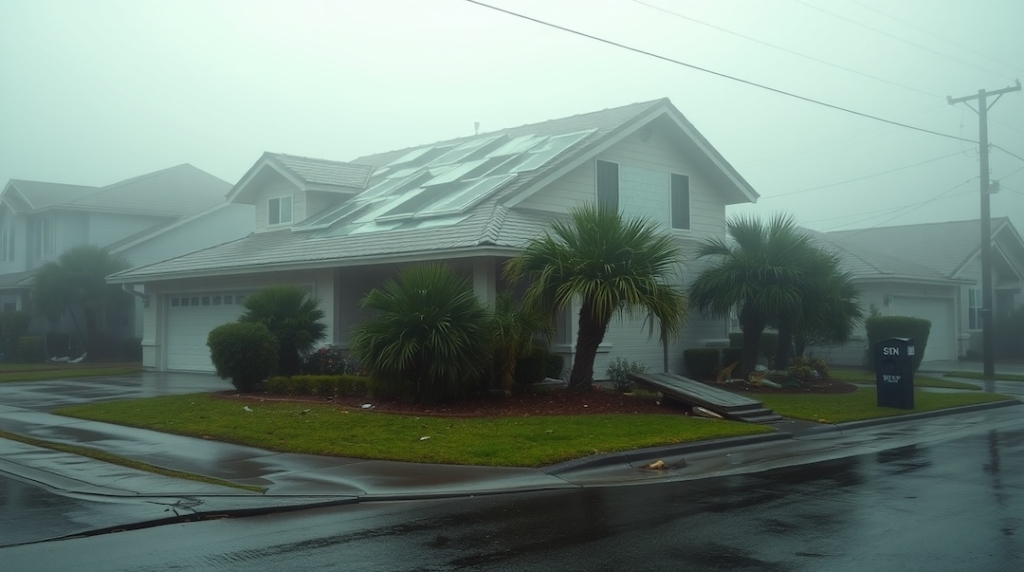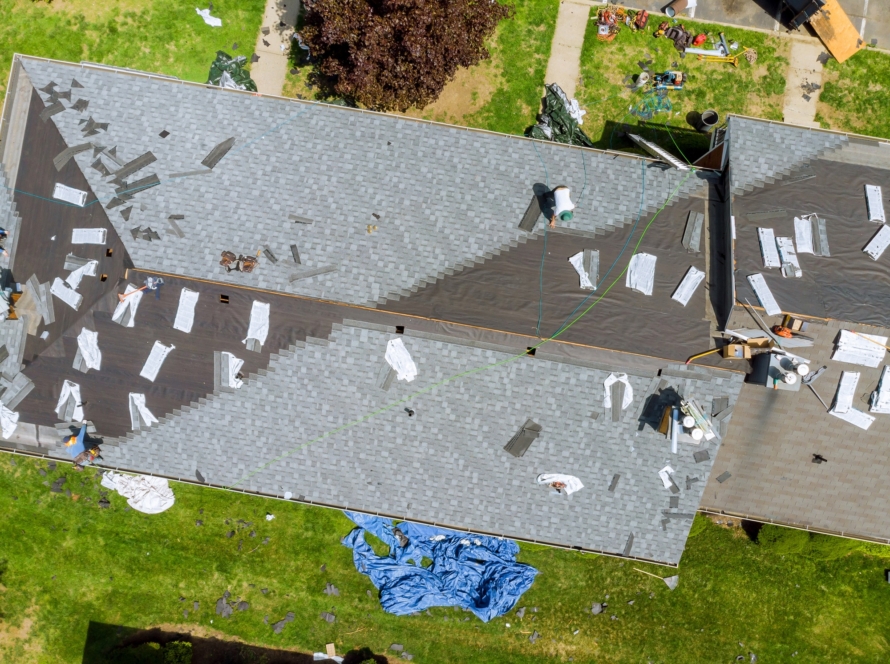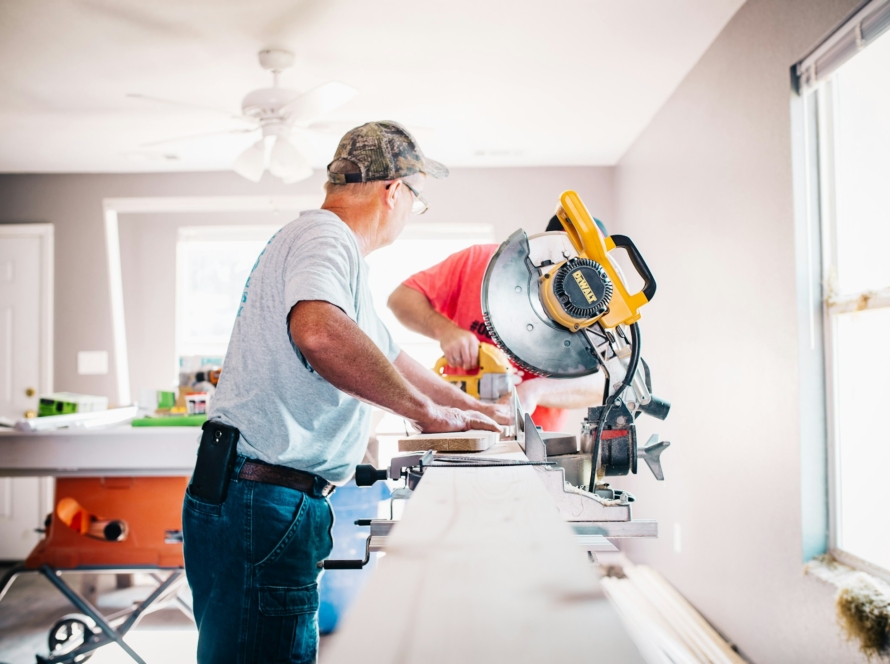
Understanding Property Damage Claims
Handling property damage claims in Florida can feel a bit like trying to solve a puzzle with too many pieces. Getting to know which types of damage are covered and what typically causes these damages is your ticket to making the most out of your Florida property damage insurance.
Definition of Property Damage
So, what’s property damage all about? Basically, it refers to any harm that hits real estate like houses, companies, or lands. When it comes to Florida, these claims aren’t just about the walls and the roof; they might also cover your stuff inside and, sometimes, injuries to people too.
Common Causes of Property Damage
Lots of things can mess up properties in Florida. Being aware of these usual troublemakers helps property owners stay ahead of the curve and ready when it’s time to file those claims.
Here are the usual suspects:
Fire Damage: Fires keep many Florida residents on their toes. Think electrical glitches, kitchen accidents, lightning mashing, or even arson. The good news? Most homeowner’s insurance policies step in to handle fire troubles.
Water Damage: There’s no shortage of ways water can sneak its way in, from bursting pipes and flooding to leaky roofs and mischievous appliances. Fortunately, standard home plans in Florida usually have your back.
Mold Damage: Mold loves to party after water damage, and it brings some health risks as plus-ones. Insurance might cover mold if those pesky pipes or AC systems are the life of the party. Dive deeper into moldy matters at our mold damage considerations.
Windstorm Damage: With all those hurricanes and tropical storm dance-offs, Florida isn’t exactly boring. State rules say insurance should have windstorm coverage, so you’re not left holding the event bill.
| Type of Damage | Usual Causes | Coverage Know-How |
|---|---|---|
| Fire Damage | Electrical glitches, kitchen mishaps, lightning crashes, arson | Most homeowner’s policies pitch in |
| Water Damage | Bursting pipes, flooding, roof leaks, broken appliances | Standard coverage in your home plan |
| Mold Damage | Post-water damage like pipes and AC letdowns | Sometimes covered, check the fine print |
| Windstorm Damage | Hurricanes, tropical storms acting out | Insurance required to include this coverage |
Property folks, it’s a smart move to double-check your policies. Know what’s covered, what’s off the table, and the limits. Get your head around these damage types so your florida property damage insurance coverage doesn’t catch you by surprise.
Types of Property Damage in Florida
Dealing with property damage in Florida? It’s good to know what you’re up against and what those insurance people mean when they start talking fast. Let’s break down some common types of property damage Floridians face more often than they’d like.
Fire Damage Coverage
Fire damage can light up your life for all the wrong reasons. Whether it’s due to overloaded outlets, a fancy new kitchen recipe gone wrong, lightning deciding to strike twice, or someone’s ill intent, fire’s a real party crasher. Most home insurance plans have got your back on this one. Here’s a peek at the things you should know:
| What Ignites the Flames | Covered or Not? |
|---|---|
| Electrical Issues | You bet |
| Oops-in-the-Kitchen | Yep |
| Lightning Strikes | Sure thing |
| Arson | Covered, but lawyers might get involved |
Water Damage Coverage
In Florida, water sometimes acts more like an unwelcome guest. Burst pipes, leaky roofs, rebellious washing machines, or good old Mother Nature can all cause you issues. Regular insurance usually covers you for water mishaps—well, most of them.
| Water Problems | Insurance Got You? |
|---|---|
| Pipes That Go Pop | Yes |
| Roofs That Leak | Yep |
| Appliances That Attack | Yes |
| Flooding the Basement | Not by default, get an extra plan |
Mold Damage Considerations
Mold’s that troublesome neighbor that suddenly appears after water’s done partying at your place. Insurance plays it tricky with mold. Suddenly soaked or not-your-fault? They might cover it. Mold from long-term dampness or ignored problems? You’re likely on your own.
To dodge mold issues, keep up with the housework or perhaps spring for extra coverage just in case.
Windstorm and Flood Insurance
Living in the Sunshine State means windstorms and floods have your address on speed dial. Regular property policies generally handle wind damage okay but flood coverage?
| Stormy or Soaked? | What’s Covered? |
|---|---|
| Windstorm Wrath | Standard policy shield |
| Floods Baptizing Your Basement | Separate flood insurance needed |
Insurance Policy Coverage in Florida
Getting a grip on insurance coverage in Florida is like having an umbrella on a rainy day—it’s a necessity when you’re caught in a property damage storm. Key points to zero in on include Property Damage Liability, what your policy outright skips and limits, and the cold, hard truth about wear and tear.
Property Damage Liability (PDL)
PDL’s your buddy when you bungle it with your vehicle and leave someone else picking up the pieces. It’s there to shell out for the stuff you wreck, like another person’s car or even a busted road sign when you mix up “stop” with “go.” Florida, along with most other states, says you gotta have it in your vehicle insurance mix.
Here’s how liability usually shakes out in a policy:
| Liability Coverage | Limit Per Person | Limit Per Accident | Property Damage Liability |
|---|---|---|---|
| Bodily Injury | $50,000 | $100,000 | $25,000 |
The $25,000 figure? That’s your cap—the max your policy will pony up in property damage on a bad day behind the wheel.
Exclusions vs. Limitations in Policies
Insurance policies are like those “terms and conditions” no one reads but everyone clicks—packed with exclusions and limitations spelling out what they don’t cover. Knowing the difference is like having the secret code to your coverage (or lack thereof).
- Exclusions: These are the “don’t even think about it” clauses—events or conditions insurers won’t touch. Think earthquakes or acts of war.
- Limitations: More like the “up to a point” guidelines—these cap the coverage on specific losses, such as a maximum payout for your home’s stuff.
Florida courts look to insurers to make these no-no’s crystal clear. If there’s a gray area, they’ll usually side with you, the policyholder. It’s good to have the law backing you up—just in case!
Wear and Tear Exclusions
Let’s face it, things fall apart. But insurers won’t cover everyday wear and tear. If it breaks down because it’s old and tired, you’re likely on your own. They only jump in for those “oops” moments—like if a pipe bursts, not for the rust creeping across it for years.
Know these exclusions well so you’re not blindsided, investing in routine upkeep can save you from a nasty surprise.
Mastering these insurance essentials in Florida helps you take the driver’s seat in handling claims with calmness and clarity. Digging into your policy can pay off big time at the claims counter.
Legal Aspects of Property Damage Claims
When dealing with property damage claims in Florida, it’s key to grasp the little details involved. Think legal help, knowing filing deadlines, and getting the documents in order.
Legal Assistance for Disputes
Folks in Broward County, covering spots like Sunrise, Fort Lauderdale, and Pembroke Pines, can get legal help from firms like Geyer Fuxa Tyler when they’re butting heads with insurers over stuff like policy exclusions. It’s a smart move to get legal advice when you’re up against tricky policy language or rejected claims. Florida courts usually back the policyholder when things get vague, which highlights the need for consumer protection.
- Free Claim Reviews: Often, legal firms look at your claim for nothing to see if there’s any meat to your dispute.
- Policy Interpretation: In fuzzy language scenarios, Florida courts usually side with the policyholder.
- Duty to Write Clear Policies: Insurers gotta keep it clear to avoid crossing into wrong denial territory.
Filing Deadlines and Timely Claims
Getting those property damage claims in on time is a biggie for coverage. Taking too long might mean no claim or less money back. Got to stick to the filing times laid down in your policy.
| Type of Damage | Filing Deadline |
|---|---|
| Fire Damage | 60 days |
| Water Damage | 30 days |
| Windstorm Damage | 90 days |
| Mold Damage | 14 days |
- Fire Damage: You’ve got a 60-day window to get those fire claims sorted.
- Water Damage: 30 days is the norm for water-related mishaps.
- Mold Damage: Mold issues? You need to talk to your insurer within 14 days to sidestep any trouble over what’s what.
To keep on top of these deadlines, homeowners or businesses should punt their property damage report on to their insurer right away. That’s how you kick off the claims process and cut out any delay hassles.
Importance of Documentation
Properly recording everything tied to your property damage claim? A necessity. It helps in painting a clear picture of the damage and makes your claim stand tall.
- Photographs and Videos: Snap up loads of pics and vids of the mess right off the bat.
- Receipts and Estimates: Collect every receipt from repairs, estimates from the builder types, and connected costs.
- Written Statements: Get down any write-ups from witnesses, maybe even contractors or neighbors.
Keeping all the info neat and clear can hurry along the florida property damage insurance claims process and set you up strong if there’s a need for any wrangling ahead. For more on getting your paperwork and other practical know-how, have a look at our article on florida homeowner insurance claim process.
By grasping these legal angles, property owners can tackle the twists and turns of property damage claims in Florida confidently, helping them to crank up their florida property damage insurance coverage.
Practical Steps in Property Damage Claims
If your home or business in Florida takes a hit and you’re knee-deep in the madness that is property damage, there’s a method to this madness. Knowing how the claims process unfurls can be the key to snagging the best insurance deal. Here’s the lowdown on what you need to do—from reporting that splintered roof to playing nice with the adjusters for smooth sailing.
Reporting Damage to Insurers
When stuff goes sideways, the first thing you gotta do is holler at your insurance folks pronto. They’re not fans of the hurry-up offense, but they’ve got deadlines, so dilly-dallying is a big no-no. Drop the ball, and they might just slam the door on your claim.
| Step | Action |
|---|---|
| 1. | Call up the insurance company as soon as you spot the mess. |
| 2. | Spill all the juicy details about what’s busted. |
| 3. | Share snaps and documents that back up your story. |
More tidbits on the Florida homeowner insurance claim process are lurking in our guide.
Efficient Claim Processing
Getting your claim moving without a hitch boils down to nailing down a few details. It’s about greasing the gears so you get your due without the runaround.
Key Steps in Efficient Claim Processing:
Documentation: Document every little whisper exchanged with your insurer, stash those receipts for repairs, and hoard any other papers that could swing things in your favor.
Follow-Up: Keep a hawk’s eye on the status of your claim. Don’t just sit back—keep your insurer on their toes.
Legal Muscle: If the situation turns into a scrap, think about getting a lawyer.
Looking for more insights? Our pages on Florida property damage insurance claim help and Florida property damage insurance claims process have got you covered.
Getting all your ducks in a row and keeping a paper trail can really sway the result of a property claim, ensuring you’re not left high and dry when the insurance cash is divvied up.
Factors Affecting Home Insurance Rates
Grasping what influences those insurance bills can arm Florida homeowners with the wisdom to pick the right coverage without breaking the bank. Let’s cut through the details of what really affects those costs.
Location Impact on Premiums
Where you set your roots in Florida can decide if you’ll face higher or lower insurance bills. Homes hugging the coast pay more because of the hurricane and flood risks — nature’s not always kind to oceanfront properties! On the other hand, homes tucked further inland or in neighborhoods with low crime rates typically dodge high insurance costs.
| Location | Premium Impact |
|---|---|
| Coastal Areas | Higher |
| Inland Areas | Lower |
| Low Crime Rate Areas | Lower |
| High Crime Rate Areas | Higher |
Home Condition and Age
The age and state of your house can really move the needle on those premiums. Older homes can hike up the costs due to old wiring, plumbing, or flimsy roofs. But if you’re lucky enough to have a snazzier, newer pad with all the latest safety bells and whistles, you can enjoy more wallet-friendly insurance rates.
| Home Age | Condition | Premium Impact |
|---|---|---|
| 0-10 Years | New/Updated | Lower |
| 10-30 Years | Moderate | Moderate |
| 30+ Years | Older/Outdated | Higher |
Coverage Limits Influence
The scope of your coverage plays a big role in your insurance expenses. Minimal coverage to satisfy mortgage lenders isn’t as pricey as souped-up, all-encompassing policies. Striking the right equilibrium between enough coverage and a budget-friendly premium is a balancing act every homeowner must tackle.
| Coverage Level | Premium Impact |
|---|---|
| Basic Coverage | Lower |
| Standard Coverage | Moderate |
| Comprehensive Coverage | Higher |
Knowing these facets gives homeowners the necessary know-how to get the most out of their Florida property damage insurance coverage. By mulling over location, your home’s condition, and coverage limits, you can make savvy choices to fine-tune your insurance plan.
Home Features and Premium Discounts
Living in Florida? There’s a way to keep the insurance folks off your back while saving those precious pennies! By sprucing up your home with some strategic features, you could slash a good chunk off your property damage insurance bills. It’s all about making your home a safe haven and reducing risks, which makes insurers breathe easy.
Security and Safety Systems
Think of adding a few bells and whistles to your home. Security systems, fire alarms, smoke detectors, and storm shutters aren’t just for peace of mind—they’re your ticket to discounts! When you gear up your home against burglars, fires, and stormy tantrums, the insurance companies take note—and knock some dollars off your premium.
| Home Feature | Potential Premium Discount (%) |
|---|---|
| Home Security System | 5 – 20 |
| Fire Alarms | 2 – 10 |
| Smoke Detectors | 2 – 10 |
| Storm Shutters | 5 – 15 |
Construction Materials Role
What’s your house made of? Turns out, it matters big time. Homes built with sturdy stuff like metal roofs and impact-resistant windows keep you and your wallet safe. This extra armor stands strong against Mother Nature when she decides to huff and puff. Metal roofs, hefty windows—these bad boys spit in the face of Florida’s notorious hurricanes and floods, and the insurers love it.
| Construction Material | Potential Premium Reduction (%) |
|---|---|
| Metal Roof | 5 – 20 |
| Impact-Resistant Windows | 5 – 15 |
| Reinforced Doors | 5 – 15 |
| Noncombustible Materials | Up to 10 |
Marital Status and Insurance Costs
Who knew your relationship status could affect your homeowner’s insurance? Turns out, being hitched might actually save you some cash on premiums. Married folks apparently have an edge, as they seem less likely to file claims (that’s what the stats say! Bankrate). If you’re in Hawaii or Massachusetts though, they skip this love line item.
| Marital Status | Average Premium Impact |
|---|---|
| Single | Higher |
| Married | Lower |
By playing your cards right with these home tweaks, your Florida castle can withstand most storms and save you some sweet moolah. Need a hand with claims? Contact Payne Law today!!
Schedule a FREE Consultation.
Submit your case details swiftly through our contact form for Payne Law’s prompt review and response.
Error: Contact form not found.



